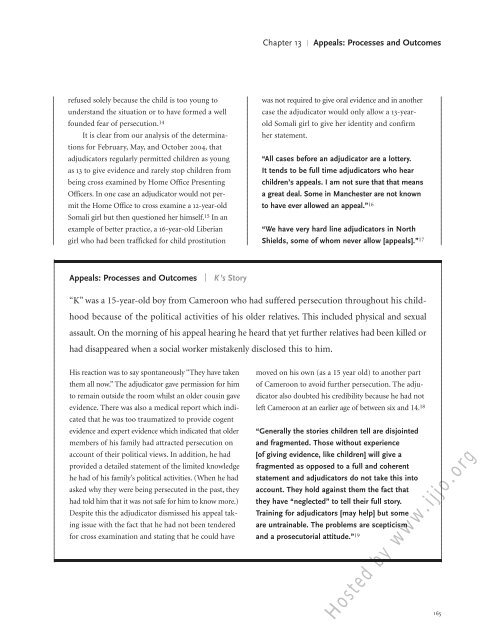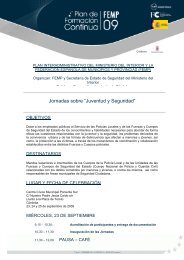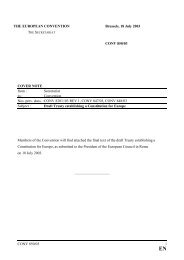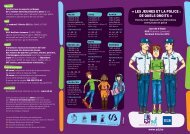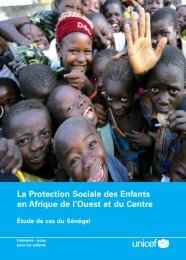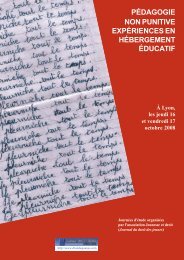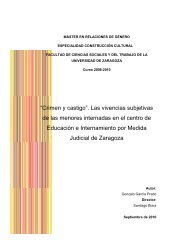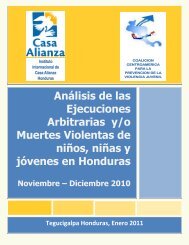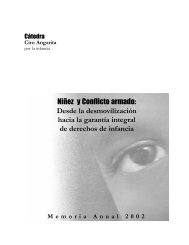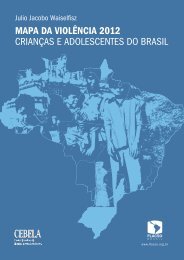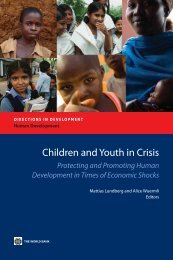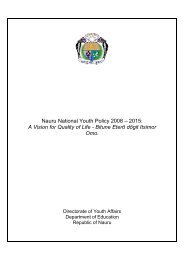Hosted by www.ijjo.org
Hosted by www.ijjo.org
Hosted by www.ijjo.org
You also want an ePaper? Increase the reach of your titles
YUMPU automatically turns print PDFs into web optimized ePapers that Google loves.
Chapter 13 | Appeals: Processes and Outcomes<br />
refused solely because the child is too young to<br />
understand the situation or to have formed a well<br />
founded fear of persecution. 14<br />
It is clear from our analysis of the determinations<br />
for February, May, and October 2004, that<br />
adjudicators regularly permitted children as young<br />
as 13 to give evidence and rarely stop children from<br />
being cross examined <strong>by</strong> Home Office Presenting<br />
Officers. In one case an adjudicator would not permit<br />
the Home Office to cross examine a 12-year-old<br />
Somali girl but then questioned her himself. 15 In an<br />
example of better practice, a 16-year-old Liberian<br />
girl who had been trafficked for child prostitution<br />
was not required to give oral evidence and in another<br />
case the adjudicator would only allow a 13-yearold<br />
Somali girl to give her identity and confirm<br />
her statement.<br />
“All cases before an adjudicator are a lottery.<br />
It tends to be full time adjudicators who hear<br />
children’s appeals. I am not sure that that means<br />
a great deal. Some in Manchester are not known<br />
to have ever allowed an appeal.” 16<br />
“We have very hard line adjudicators in North<br />
Shields, some of whom never allow [appeals].” 17 165<br />
Appeals: Processes and Outcomes | K’s Story<br />
“K” was a 15-year-old boy from Cameroon who had suffered persecution throughout his childhood<br />
because of the political activities of his older relatives. This included physical and sexual<br />
assault. On the morning of his appeal hearing he heard that yet further relatives had been killed or<br />
had disappeared when a social worker mistakenly disclosed this to him.<br />
His reaction was to say spontaneously “They have taken<br />
them all now.” The adjudicator gave permission for him<br />
to remain outside the room whilst an older cousin gave<br />
evidence. There was also a medical report which indicated<br />
that he was too traumatized to provide cogent<br />
evidence and expert evidence which indicated that older<br />
members of his family had attracted persecution on<br />
account of their political views. In addition, he had<br />
provided a detailed statement of the limited knowledge<br />
he had of his family’s political activities. (When he had<br />
asked why they were being persecuted in the past, they<br />
had told him that it was not safe for him to know more.)<br />
Despite this the adjudicator dismissed his appeal taking<br />
issue with the fact that he had not been tendered<br />
for cross examination and stating that he could have<br />
moved on his own (as a 15 year old) to another part<br />
of Cameroon to avoid further persecution. The adjudicator<br />
also doubted his credibility because he had not<br />
left Cameroon at an earlier age of between six and 14. 18<br />
“Generally the stories children tell are disjointed<br />
and fragmented. Those without experience<br />
[of giving evidence, like children] will give a<br />
fragmented as opposed to a full and coherent<br />
statement and adjudicators do not take this into<br />
account. They hold against them the fact that<br />
they have “neglected” to tell their full story.<br />
Training for adjudicators [may help] but some<br />
are untrainable. The problems are scepticism<br />
and a prosecutorial attitude.” 19<br />
<strong>Hosted</strong> <strong>by</strong> <strong>www</strong>.<strong>ijjo</strong>.<strong>org</strong>


